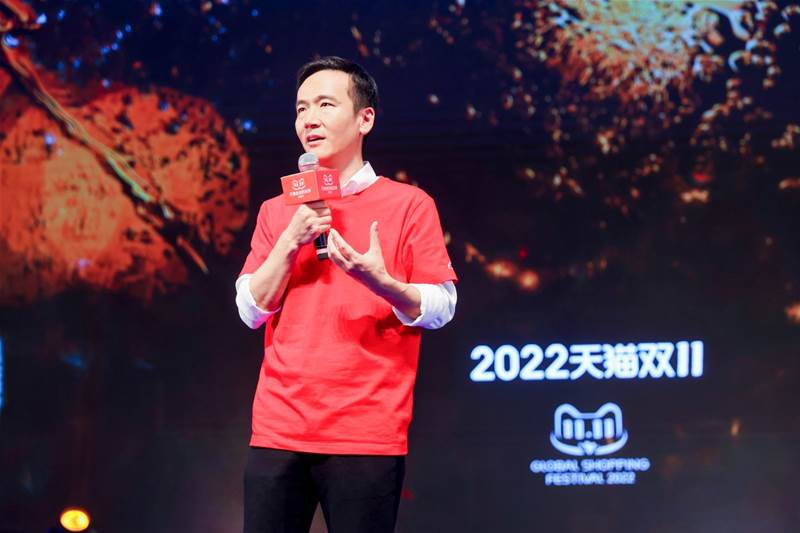Overcoming adverse headwinds caused by Covid-19 and other factors, Alibaba Cloud successfully delivered support for the Alibaba Group’s 11.11 Global Shopping Festival, with its high-performance and innovative computing and technology.
This year’s 11.11 was powered by Alibaba Cloud’s dedicated processing unit for the Apsara Cloud operating system. The upgraded infrastructure system, significantly improved the efficiency of computing, storage and network in data centres supporting the event, while also reducing network latency.
The group saw an eight percent year-on-year saving in computing cost per resource unit from April 1 to November 11, 2022, thanks to self-developed infrastructure upgrades.
This new upgrade, which is supported by cloud-native technology, allowed Alibaba Cloud to simultaneously launch ordering, pre-sale balance payment and refunding processes with enhanced scalability and lower latency.
The cloud-native database products also more than doubled the capacity of consumers’ shopping carts, from 120 items to 300 thus enhancing their convenience.
The ApsaraDB for Redis Enhanced Edition (Tair), a cloud-based in-memory database service for enterprises, supports new functions such as product grouping and sorting, enabling consumers to organise their shopping cart according to their own preferences.
They could also make use of the “select” function to enjoy cross-merchant discounts, to pre-order goods and use vouchers for a more rewarding shopping experience.
Taobao upgrade
The front page of Taobao, one of Alibaba’s e-commerce platforms, was upgraded by the latest serverless technology, allowing for automatic scaling with extreme elasticity based on actual workloads.
Another new feature this year was an extended reality marketplace (XR-powered market place) on Tmall and Taobao.
Customers got a more immersive shopping experience thanks to Alibaba’s proprietary technology which supported extended reality.
Alibaba’s 3D modelling technology leverages a neural radiance field (NeRF), a neural network technology for generating novel views of complex 3D scenes.
This allowed luxury retail and furniture brands, like Burberry, Estee Lauder and SK-II, to build virtual stores on the e-commerce platform Tmall.
Through self-developed 3D renderings that realistically represent natural light, flames and natural flowing water, an outdoor nature scene was built for sportswear brands including Descente (Japan), to showcase its latest products in a vibrant and invigorating environment.
Consumers could also view the products in three dimensions, enabling them to inspect details up close, or try on watches and accessories virtually thanks to built-in augmented reality (AR) technology. Consumers could also arrange different items of furniture indoors, or tents for outdoor camping.
Virtual shopping street
Using automatic 3D space creation technology from Alibaba’s research institute DAMO Academy, a virtual shopping street was built, featuring over 700 products from 70 brands including 30 internationally-recognised franchises, such as Sanrio’s iconic Hello Kitty, and Hollywood’s franchise Minions.
Shoppers were given the option to choose their own avatars, check out the products and place them in their virtual shopping carts.
Alibaba Group’s Chief Technology Officer, Li Cheng said the breadth and depth of cloud technology deployment during this year’s 11.11 has “once again showcased Alibaba’s best cloud and technology practice”.
He added that the fundamental architecture like self-proprietary technology powering high-performance computing and database products, or consumer-facing XR reality and live streaming technologies, was best in class and were on display.
“We intend to continue applying these proven capabilities to even better serve our customers and help them to be more efficient, innovative and greener in their own digital transformation journeys,” Li said.
Reduced energy consumption
In addition to its cloud computing solutions helping to reduce energy consumption, Alibaba Cloud’s five hyper-scale data centres across China also doubled the amount of clean energy used to support this year’s 11.11 compared to last year.
More than 32 million kilowatt-hours of electricity used by Alibaba Cloud to support 11.11 this year came from renewable energy, up by 30 percent on a daily basis average compared to last year.
Additionally, Alibaba Cloud's Heyuan data centre, the cloud company’s largest hyper-scale data centre in south China, now runs entirely on clean energy.
Alibaba Cloud’s self-developed immersion cooling technology has reduced the energy consumption of the data centres, with power usage effectiveness (PUE) reaching as low as 1.09 - a world-leading level.
Alibaba Cloud has also worked with Tmall to leverage the carbon management platform, Energy Expert.
It provided online carbon footprint modeling, calculations and certifications for more than 40 brands in various sectors, including paper and pulp, food and personal care, to help them categorise low-carbon products, identify carbon emission resources and conduct informed sustainability practices to reduce carbon emission.





